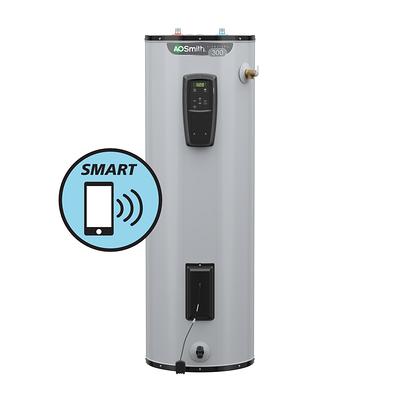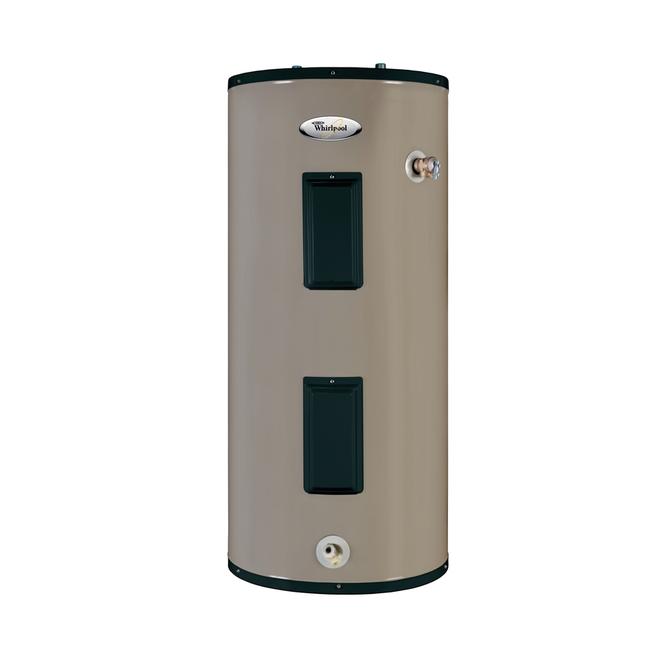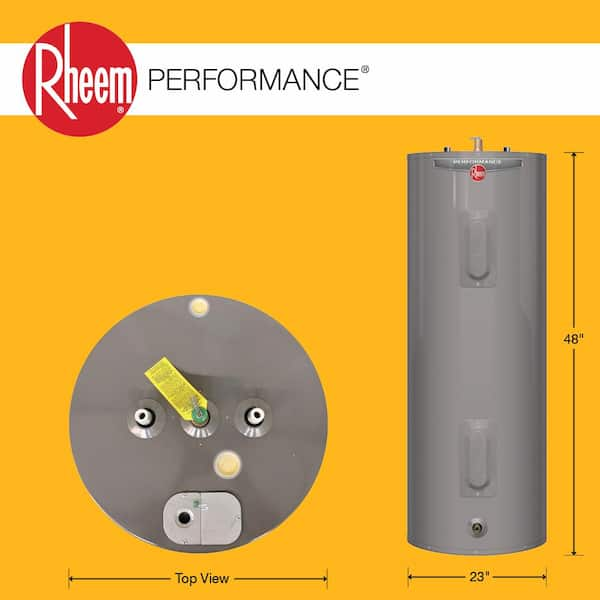When it comes to choosing the right water heater for your home, you might find yourself caught between a 4500 watt and a 5500 watt option. The decision isn’t just about numbers—it’s about ensuring comfort, efficiency, and savings in your daily life.
Imagine stepping into a hot shower on a chilly morning, only to be met with lukewarm disappointment. Not exactly the start to a perfect day, right? By understanding the differences between these two wattage options, you can avoid such inconveniences and make an informed choice that suits your household’s needs.
We’ll break down the pros and cons of each to help you discover which one is the perfect match for you. Stay with us, and you’ll gain the clarity needed to make a decision that brings warmth and satisfaction to your home.
Understanding Wattage In Water Heaters
Understanding the wattage in water heaters is crucial when choosing between models like the 4500 Watt and 5500 Watt versions. Wattage is a measure of the electrical power used to heat water. The higher the wattage, the faster your water will heat up. But is speed the only factor you should consider? Let’s dive into what these numbers really mean for your household and lifestyle.
What Does Wattage Mean For Your Water Heater?
The wattage of a water heater affects how quickly it can heat water. A 4500 Watt heater takes longer to heat the same amount of water compared to a 5500 Watt heater. If you have a large family or need hot water on demand, a higher wattage might be more suitable.
Think about your morning routine. Do you often find yourself waiting for the hot water to kick in before jumping in the shower? A higher wattage heater could save you time and make your mornings less hectic.
Energy Consumption And Efficiency
Higher wattage heaters consume more electricity. However, they might not necessarily be less efficient. A 5500 Watt heater heats water faster, which means it runs for a shorter duration, potentially saving energy in the long run.
Consider how often you need hot water and the size of your household. A smaller household might find a 4500 Watt heater more than adequate, while a larger family could benefit from the quick heating of a 5500 Watt model.
Cost Implications
Initial costs for a 5500 Watt heater can be higher, but the benefits might outweigh the price difference. If quick recovery time is essential for you, the investment could be worthwhile.
On the flip side, a 4500 Watt heater is usually cheaper to buy. Consider your budget and how much you’re willing to spend for convenience and efficiency.
Personal Experience: The Unexpected Benefits
When I upgraded from a 4500 Watt to a 5500 Watt heater, my mornings transformed. No more waiting for the water to warm up. It was an investment in convenience and efficiency for my busy family.
Have you ever thought about how a simple change could impact your daily routine? The right wattage can make a noticeable difference in your comfort and energy usage.
Which Wattage Is Right For You?
Your decision should balance speed, cost, and energy efficiency. Reflect on your daily water usage and household size.
Ask yourself: Do you prioritize quick heating times, or is energy consumption a bigger concern? Your answers will guide you to the right choice.
Choosing between a 4500 Watt and a 5500 Watt water heater is not just about numbers. It’s about finding what fits your lifestyle and needs. Take your time to consider your options and make an informed decision.
Energy Efficiency
When considering water heaters, energy efficiency is crucial. It’s not just about saving money; it’s about minimizing your environmental footprint. Whether you’re upgrading or installing a new unit, understanding the differences between 4500 Watt and 5500 Watt models can help you make an informed decision.
Power Consumption
Have you ever noticed your energy bill spike during colder months? That’s often due to inefficient water heating. A 4500 Watt water heater uses less power compared to a 5500 Watt model. This means lower consumption overall, especially if your household water needs are moderate.
However, a 5500 Watt heater heats water faster, which might be beneficial if you have a large family needing hot showers in the morning. But is the extra speed worth the increased power usage? You must weigh your usage patterns against power consumption to decide.
Cost Implications
Choosing between these models isn’t just about upfront costs. Consider the long-term financial impact. The 4500 Watt heater might be cheaper initially, but what about efficiency savings? Less power used means lower bills.
Meanwhile, the 5500 Watt option might save time and thus reduce indirect costs, like waiting for water to heat during busy mornings. Time saved can translate into increased productivity. Does saving those precious minutes justify a potential increase in your monthly bill?
Ultimately, the choice hinges on your daily needs and budget. What’s more valuable to you: immediate savings or long-term efficiency? By analyzing your lifestyle and water usage, you can choose the most cost-effective and energy-efficient option.
Heating Speed
Choosing between a 4500 Watt and a 5500 Watt water heater affects heating speed. The 5500 Watt model heats water faster due to higher power. This can be crucial for large families needing quick hot water access.
When considering a water heater, the heating speed is a crucial factor. It influences how quickly you can enjoy a hot shower or wash dishes. The power wattage, such as 4500 watts or 5500 watts, plays a significant role in this. Understanding the difference can help you decide which one suits your lifestyle best.
Time To Heat Water
A 4500-watt water heater will generally take longer to heat water compared to a 5500-watt model. This is because the higher the wattage, the more power it can use to heat the water quickly. For example, if you have a busy household, waiting an extra 10-15 minutes for hot water could feel like a lifetime. A 5500-watt heater can provide hot water more swiftly. This can make a noticeable difference in your daily routine, especially during morning rush hours. If you’re someone who values every minute in the morning, this could be a game-changer.
Impact On Daily Routine
Faster heating means less waiting. Imagine waking up late and needing a quick shower before heading out. A 5500-watt heater can ensure you don’t have to compromise on comfort. On the other hand, a 4500-watt heater might require some adjustments to your routine. You might need to schedule showers or washing dishes at different times to ensure hot water availability. This could mean planning ahead or even staggering the times family members use hot water. Consider how often you use hot water during the day. If your usage is high, the faster heating of a 5500-watt heater may better fit your needs. But if your hot water needs are minimal, a 4500-watt heater could be more than adequate. Does the speed at which your water heater functions impact your daily life? Understanding your needs and lifestyle can help you make the right choice.

Credit: www.zenaslegalpractice.com
Compatibility With Home Systems
Choosing the right water heater wattage can impact your home’s system compatibility. Different wattages have unique requirements and considerations. Understanding these factors ensures efficient energy use and safe operation.
Electrical System Requirements
The electrical system must support your water heater’s wattage. A 4500-watt heater typically requires a 20-amp circuit. It suits homes with standard electrical setups. A 5500-watt heater often needs a 30-amp circuit. This may require upgraded wiring. Always check circuit capacity before installation.
Space Considerations
Space affects water heater choice. A 4500-watt heater is generally more compact. It fits small spaces well. Homes with limited space benefit from this option. A 5500-watt heater may be larger. It needs more room for safe installation. Measure your space carefully before deciding.
Durability And Longevity
When choosing between a 4500 Watt and a 5500 Watt water heater, durability and longevity stand out as key factors. These aspects determine how long your investment will last. A reliable water heater saves money over time. It also ensures a steady supply of hot water.
Material Quality
Material quality plays a vital role in the durability of water heaters. A high-quality tank resists rust and corrosion. Stainless steel is a popular choice for its strength. It lasts longer and requires less maintenance. Enamel-lined tanks offer added protection. They provide a barrier against minerals and rust.
The heating elements are crucial too. Copper heating elements are efficient and durable. They heat water quickly, reducing energy costs. In contrast, stainless steel elements are more resistant to wear. They provide longevity but may heat slower than copper.
Maintenance Needs
Maintenance impacts the lifespan of your water heater. Regular checks help spot issues early. Flushing the tank removes sediment build-up. This simple task can extend the heater’s life. It ensures efficient operation.
Inspecting the anode rod is important. This rod attracts corrosive elements. Replacing it every few years prevents rust inside the tank. A well-maintained water heater operates more efficiently.
4500 Watt models may need less maintenance. They often have fewer parts and simpler designs. This can mean fewer potential problems. 5500 Watt models may require more attention. Their increased power comes with more components.
Cost Comparison
Choosing between a 4500 Watt and 5500 Watt water heater can be challenging. Cost plays a significant role in this decision. Understanding the financial implications is crucial for making an informed choice.
Initial Investment
The initial cost of a water heater varies with wattage. A 4500 Watt heater generally costs less upfront. This makes it attractive for budget-conscious buyers. On the other hand, a 5500 Watt heater is often pricier. The higher wattage means a higher purchase price. Buyers must weigh this against potential benefits.
Long-term Savings
Electricity consumption impacts long-term savings. A 5500 Watt heater heats water faster. It can be more efficient in energy use over time. This efficiency might reduce electricity bills. A 4500 Watt heater consumes less power initially. This may lead to savings in monthly electricity expenses. Evaluating energy efficiency is key for long-term financial planning.
Maintenance costs also affect savings. Higher wattage heaters might require more upkeep. This can add to expenses over the years. Lower wattage models might have fewer maintenance needs. Considering potential repairs and upkeep is important for total cost assessment.
Environmental Impact
Choosing between a 4500 Watt and a 5500 Watt water heater affects energy consumption and environmental footprint. The 5500 Watt model uses more energy, potentially increasing greenhouse gas emissions. Opting for a lower wattage may reduce environmental impact and save on electricity costs.
Choosing between a 4500 watt and a 5500 watt water heater affects the environment. Energy consumption is a crucial factor here. The impact on our planet comes from how much energy these heaters use. Let’s explore this further.
Energy Source
The energy source for water heaters matters a lot. Most heaters use electricity, but the origin of this electricity varies. If it’s from renewable sources, the environmental impact lessens. But, if the energy comes from fossil fuels, the impact increases. A 4500 watt heater uses less energy than a 5500 watt heater. This means a lower demand for electricity.
Sustainability
Sustainability is about meeting our needs without harming the future. A 4500 watt heater typically needs less power, so it’s more sustainable. It uses fewer resources, creating less strain on the environment. The 5500 watt option provides more power but at a cost. This cost includes higher energy use and increased strain on resources. Choosing wisely can help support a sustainable future. `

Credit: www.protclear.com.br
User Reviews And Feedback
Users appreciate the 4500-watt model for its energy efficiency and cost-effectiveness. Many highlight the 5500-watt version’s quicker heating time as a significant advantage. Both models receive positive reviews for reliability and performance.
When considering a new water heater, understanding user reviews and feedback is crucial. This insight helps you make an informed decision between the 4500 Watt and 5500 Watt models. Real-world experiences provide valuable information about the performance, durability, and efficiency of each option. By examining what users have to say, you can determine which model might be the best fit for your needs.
Common Praise
Many users appreciate the 4500 Watt water heater for its efficiency in small to medium-sized homes. It is often highlighted for its quick heating time, which suits smaller families well. Users often mention the noticeable reduction in energy bills, attributing this to the 4500 Watt’s lower power consumption. On the other hand, the 5500 Watt model is praised for its ability to handle high-demand situations. If your household uses a lot of hot water simultaneously, this model shines with its robust performance. Users frequently note how it sustains hot water supply during peak usage times, making it ideal for larger families. Both models receive accolades for their durability and long lifespan. Customers often express satisfaction with the longevity of these water heaters, mentioning minimal maintenance requirements.
Reported Issues
Despite the positive feedback, users of the 4500 Watt model sometimes report challenges with hot water supply in larger households. This issue is particularly noted during simultaneous usage by multiple members. If your household has high hot water demands, you might find this model slightly underwhelming. Conversely, some users of the 5500 Watt water heater find it to be a bit of an energy hog. The increased power consumption, while beneficial for performance, can lead to higher electricity bills. It’s a trade-off between performance and energy efficiency that you need to weigh carefully. Some users also mention the initial cost of the 5500 Watt model as a potential hurdle. While it offers excellent performance, the upfront investment is higher compared to the 4500 Watt version. How do these reviews align with your needs? Are you willing to trade-off between energy consumption and performance? Consider these points as you make your decision. Your choice should cater to your household’s specific requirements and budget.
Making The Right Choice
Choosing between a 4500 Watt and a 5500 Watt water heater can be challenging. Understanding your personal needs and future considerations can help. Make an informed choice that suits your lifestyle and energy needs.
Assessing Personal Needs
Consider how much hot water your household uses daily. A larger family may require more hot water. A 5500 Watt heater can provide a quicker recovery rate. For smaller families, a 4500 Watt heater may suffice. Think about your peak usage times. Do you often run multiple showers or appliances simultaneously? A higher wattage can handle simultaneous usage better. Calculate your current energy bills. A 4500 Watt heater might save on energy costs.
Future Considerations
Plan for potential changes in your household. Are you expecting family growth or guests? A 5500 Watt heater can accommodate increased demand. Consider future energy efficiency improvements. A more powerful heater might adapt better to solar or other renewable energies. Evaluate your long-term budget. While a 5500 Watt heater may cost more initially, it could save money by being more efficient in the long run.
Consider the technology advancements. Newer models may offer smart features that optimize performance. Think about installation space. A larger wattage heater may require more room or specific electrical setups. Be mindful of water heater lifespan. A higher wattage heater can potentially have a longer lifespan with less strain.

Credit: www.homedepot.com
Frequently Asked Questions
What Is The Main Difference Between 4500w And 5500w Water Heaters?
The main difference is power output. A 5500W heater heats water faster than a 4500W heater.
Which Water Heater Is More Energy Efficient?
Both heaters are efficient. However, a 4500W heater may use less electricity over time, saving energy.
Does A 5500w Heater Cost More To Operate?
Yes, a 5500W heater can cost more due to higher power usage. But it heats water quicker.
Can A 4500w Heater Meet My Hot Water Needs?
A 4500W heater is often enough for small households. Check your daily usage for accurate assessment.
Is Installation Different For These Heaters?
Installation is similar for both. Ensure compatibility with your home’s electrical system before choosing.
Conclusion
Choosing between 4500 watt and 5500 watt water heaters depends on your needs. Both options can heat water effectively. The 4500 watt heater uses less electricity, great for smaller homes. The 5500 watt heater warms water faster, ideal for large families.
Consider your home size and energy bills. Think about how fast you need hot water. Both options have benefits. Evaluate your priorities. Decide which wattage fits your lifestyle best. Always check installation requirements. Choose wisely for comfort and efficiency.





